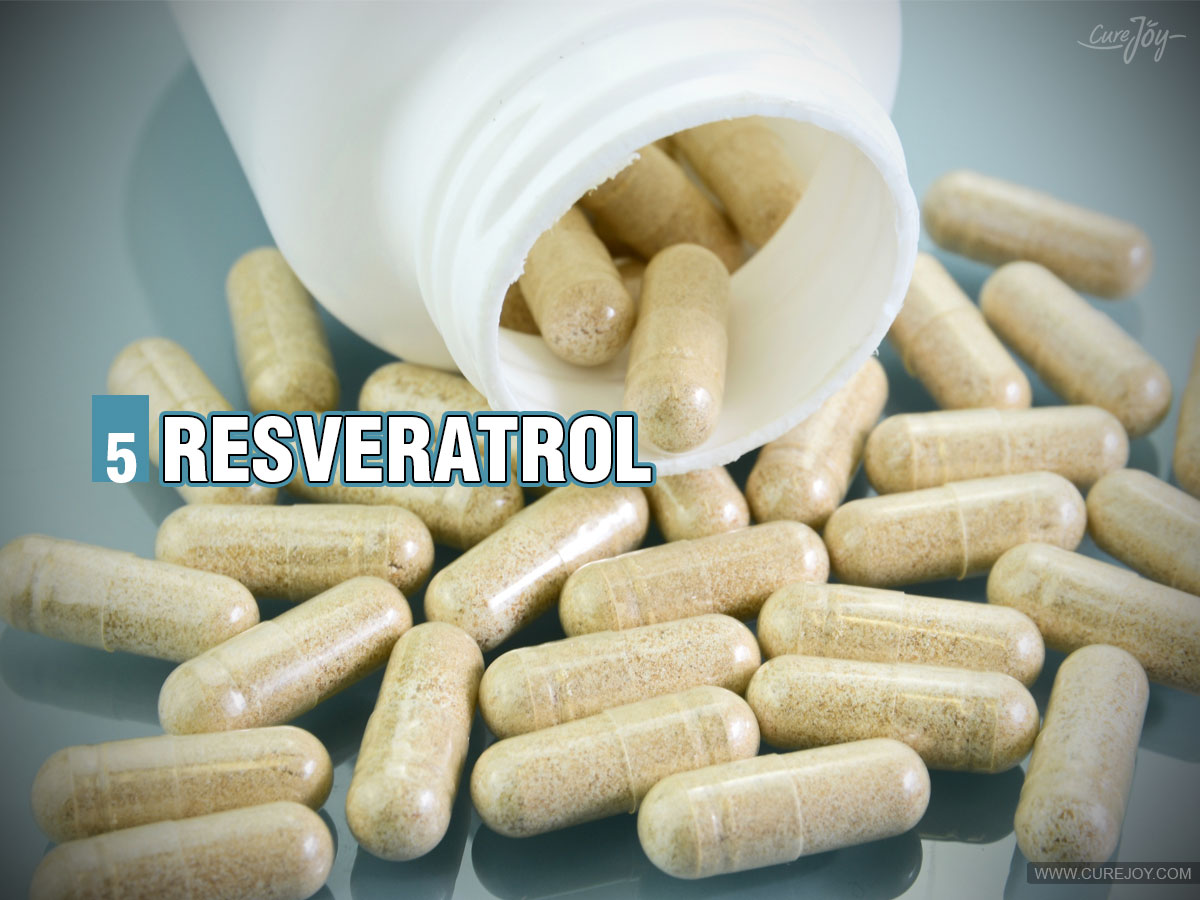Study: The benefits of vitamin, mineral and cofactor supplementation for people with autism
04/10/2025 / By Olivia Cook

- Individuals with Autism Spectrum Disorder (ASD) often experience deficiencies in essential vitamins, minerals and cofactors, which can affect brain function and behavior. These deficiencies may be due to selective eating habits, metabolic dysfunctions or medication side effects.
- Vitamins, like B6, B12 and D3, along with minerals like zinc, magnesium and iron, are critical for brain health, immune function, managing oxidative stress and neurotransmitter production – key areas often imbalanced in ASD.
- Nutritional interventions, such as combining vitamins (e.g., B6 and magnesium) or using antioxidants, like CoQ10 and alpha-lipoic acid, may help alleviate core ASD symptoms, improve behavior and support cognitive function.
- Given the heterogenous nature of ASD, the best outcomes may be achieved by personalizing treatment on the individual’s unique metabolic profile and deficiencies, rather than using a “one-size-fits-all” approach.
- While many studies show promise, more research is needed on nutrient combinations and personalized care approaches to optimize treatments and explore their full potential in improving ASD symptoms and associated conditions.
Autism Spectrum Disorder (ASD) is a complex neurodevelopmental condition characterized by a range of behavioral and cognitive challenges. Recent scientific studies, including one published in the Journal of Personalized Medicine, highlight the crucial role vitamins, minerals and cofactors in supporting brain function and managing the symptoms of ASD. The research underscores how deficiencies in these essential nutrients can negatively impact neurodevelopment and behavioral health – making their supplementation a potential strategy for improving outcomes in individuals with ASD.
The study discusses the importance of precision medicine in treating ASD, emphasizing that tailored nutritional interventions can address the unique biochemical needs of individuals. Rather than applying a generalized treatment plan, personalized approaches that target specific nutrient deficiencies or imbalances are shown to hold promise for alleviating symptoms and supporting overall brain health.
Many individuals with ASD face distinct challenges related to metabolism, nutrient absorption and oxidative stress (a type of cellular damage caused by free radicals). Some may struggle with eating a variety of foods due to sensory sensitivities (hypersensitive to textures, tastes, smells and even the appearance of food) or restricted diets, leading to nutrient deficiencies.
Additionally, metabolic anomalies, like mitochondrial dysfunction (impaired energy production in cells due to dysfunctional mitochondria, often leading to fatigue, developmental issues and neurological symptoms) and oxidative stress, often accompany ASD. These factors can increase the need for certain vitamins, minerals and cofactors. By correcting these deficiencies, we may improve some of the key biomarkers and symptoms of ASD.
The vital role of vitamins
Vitamins are vital nutrients that play a crucial role in maintaining optimal brain function, supporting cognitive processes and promoting mental clarity. They act as co-factors in energy metabolism, neurotransmitter synthesis and antioxidant defense, ensuring that the brain operates efficiently.
- Vitamin B1: Thiamine is crucial for brain function and energy metabolism. It helps with the conversion of food into energy, which is essential for proper neural activity. Deficiencies can lead to problems with concentration, general brain function and mood regulation – all of which can be amplified with ASD.
- Vitamin B2: Riboflavin plays a critical role in energy production and the metabolism of fats and proteins. Riboflavin supports healthy nervous system function and is vital for maintaining cell integrity and reducing oxidative stress. A deficiency can contribute to neurological symptoms, like cognitive difficulties and mood instability.
- Vitamin B3: Niacin is essential for DNA repair, energy production and the maintenance of healthy nerve cells. Deficiency can lead to difficulty concentrating, fatigue and irritability. In individuals with ASD, optimizing niacin levels could help support energy levels and mental clarity.
- Vitamin B5: Known as the “anti-stress” vitamin, pantothenic acid supports adrenal function and helps to produce the neurotransmitters that regulate mood and stress responses. It is often low in those with restricted diets and supplementation might help manage anxiety or hyperactivity, common in ASD.
- Vitamin B6: Pyridoxine is a key player in brain function, involved in neurotransmitter synthesis. It is especially important for regulating behavior and mood. Some research suggests that combining B6 with magnesium may help manage irritability and improve social communication skills in individuals with ASD.
- Vitamin B7: Biotin supports healthy metabolism and is crucial for the production of fatty acids, which are important for brain function. Deficiency can lead to problems, like cognitive difficulties or lethargy (a state of unusual tiredness, low energy or lack of motivation).
- Vitamin B9: Folate is essential for DNA synthesis, repair and methylation – all of which are processes critical for brain development. Deficiencies in folate have been linked to neurodevelopment disorders, making it an important nutrient to ensure during pregnancy and childhood. (Related: The science behind a promising autism treatment: How d,l-leucovorin (folinic acid) may improve ASD symptoms.)
- Vitamin B12: Cobalamin, particularly methylcobalamin, is involved in nerve health and the production of red blood cells. A deficiency can lead to neurological issues, such as fatigue, memory problems and mood swings. In ASD, addressing B12 deficiency can help with behavioral regulation and cognitive function.
- Vitamin C: As a powerful antioxidant, vitamin C helps combat oxidative stress and supports immune function. It is important for the production of collagen and neurotransmitters, which are vital for brain health and proper nerve signaling.
- Vitamin E: Known for its antioxidant properties, vitamin E protects the brain from oxidative damage. It is involved in the regulation of the immune system, which can be important in individuals with ASD who may have heightened inflammation or immune system dysfunction.
- Vitamin D3: The most bioactive form of vitamin D or the “sunshine vitamin,” cholecalciferol is crucial for brain development, immune function and neurotransmitter production. Many individuals with ASD have low vitamin D3 levels, which may contribute to difficulties in inflammation control, mood regulation and social interaction. Studies suggest that supplementation can help improve behavior, communication and overall neurological health. Since vitamin D3 is mainly obtained from sunlight, dietary intake or supplementation may be necessary to maintain optimal levels.
Essential minerals for brain and body health
Minerals are vital to both brain and body health, playing critical roles in cognitive function, energy production, nerve signaling and overall physiological balance. Magnesium and zinc are particularly crucial for brain health, supporting neurotransmitter activity, neuroplasticity and stress regulation, while also contributing to immune function, muscle contraction and metabolic processes in the body.
- Zinc: This mineral is vital for DNA synthesis, enzyme activity and immune function. Low levels of zinc have been consistently associated with ASD. Zinc helps regulate the nervous system and may play a role in brain development. Supplementation may reduce some behavioral symptoms of ASD and improve cognitive function.
- Magnesium: This mineral plays a role in over 600 biochemical reactions in the body, including those that affect brain function and nerve signaling. Low magnesium levels have been linked to symptoms, like anxiety, hyperactivity and sleep disturbances – all of which is common in ASD. Supplementation may help with mood regulation, sleep and even reducing seizures in some children with ASD.
- B6-magnesium combination: The combination of vitamin B6 and magnesium is often recommended for managing irritability and behavioral issues in children with ASD. This pairing enhances neurotransmitter function and reduces excitability, which may improve social behavior and reduce the frequency of aggressive outbursts.
- Molybdenum: This mineral is essential for the metabolism of sulfur-containing amino acids and deficiencies can lead to issues with detoxification. In individuals with ASD, molybdenum supplementation has been shown to help balance sulfite levels and reduce oxidative stress, which may help improve some behavioral symptoms.
- Selenium: This mineral plays an antioxidant role by supporting enzymes like glutathione peroxidase, which protect cells from oxidative damage. It is particularly important for brain health and has been shown to improve cognitive function and mood in some individuals with ASD.
- Copper: This mineral is critical for neurotransmitter function and energy production. However, an imbalance in the copper-to-zinc ratio can cause problems. Some studies have shown that children with ASD may have altered copper levels, which can affect brain function and behavior. Correcting this imbalance may help improve symptoms.
- Iron: This mineral is essential for oxygen transport and brain function. Deficiency in iron can lead to fatigue, cognitive issues and behavioral problems. Many children with ASD, especially those with dietary restrictions, may benefit from iron supplementation to help with energy levels and cognitive clarity.
Other key cofactors and nutrients
Beyond vitamins and minerals, other key nutrients help fuel brain function, reduce oxidative stress and support overall health. Research suggests they may play a beneficial role in managing ASD-related challenges.
- Coenzyme Q10: CoQ10 plays a central role in energy production within the cells, particularly in the mitochondria. It also acts as a potent antioxidant, protecting the cells from oxidative stress. Individuals with ASD may have lower levels of CoQ10 and supplementation has been shown to improve gastrointestinal issues, sleep and markers of oxidative stress.
- Alpha-lipoic acid: This powerful antioxidant helps protect the brain from oxidative damage while supporting energy production. Alpha-lipoic acid has been used in ASD to combat the effects of oxidative stress, reduce inflammation and improve cognitive function. It may also play a role in chelating toxic metals that accumulate in the body.
- Tetrahydrobiopterin: BH4 is a cofactor needed for the protection of important neurotransmitters, like serotonin and dopamine, which are often imbalanced in individuals with ASD. Supplementing with tetrahydrobiopterin may help stabilize nitric oxide (NO) production, improving brain signaling and overall neurological function.
Personalizing nutrition for optimal ASD care
The science is clear: Nutritional interventions can significantly improve the quality of life of individuals with ASD by targeting the underlying biochemical factors that contribute to its symptoms. However, it is important to work with trusted healthcare professionals to determine the right dosage and form of supplements to avoid potential toxicity and ensure the best therapeutic outcomes.
Nutritional interventions hold promise as effective treatments for ASD. The key is to approach each case holistically, focusing on the unique needs of each individual and providing the necessary support to help them thrive. Whether you’re a parent, caregiver or healthcare provider, it is important to not underestimate the power of a well-balanced diet and the right nutrients in making life much better for people with ASD.
Find more related stories at HealthScience.news.
Watch this video to learn more about the best supplements and vitamins for autism.
This video is from the Daily Videos channel on Brighteon.com.
More related stories:
Study unlocks the power of food: How diet can influence Autism Spectrum Disorder (ASD).
Study: Vitamin D levels linked to improved mood and mental health.
Sources include:
Submit a correction >>
Tagged Under:
alternative medicine, Autism spectrum disorder, brain function, brain health, cofactors, health science, Mind, mind body science, minerals, natural cures, natural health, natural medicine, Naturopathy, nutrients, nutrition, remedies, research, supplements, vitamins
This article may contain statements that reflect the opinion of the author
RECENT NEWS & ARTICLES
Natural.News is a fact-based public education website published by Natural News Features, LLC.
All content copyright © 2018 by Natural News Features, LLC.
Contact Us with Tips or Corrections
All trademarks, registered trademarks and servicemarks mentioned on this site are the property of their respective owners.




















